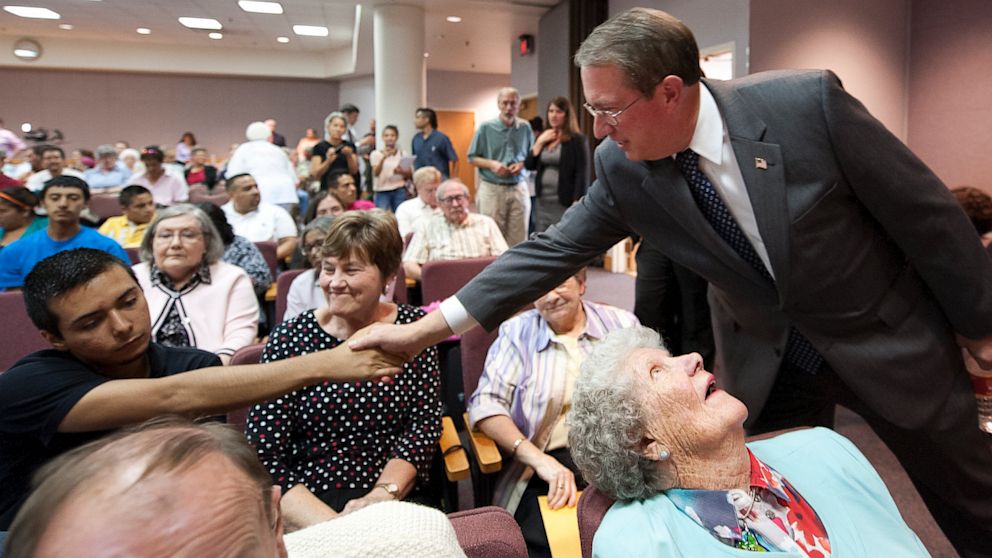The ‘Special’ Pathway to Citizenship Isn’t So Special
GOP lawmakers don't want 'special' path for undocumented immigrants

Aug. 23, 2013— -- As Republicans grapple with the question of legalizing undocumented immigrants, many have made it clear they’re against one thing: a “special” pathway to citizenship.
Rep. Bob Goodlatte (R-Va.) brought it up at a recent town hall meeting, according to the Associated Press:
Goodlatte has said that immigrants could get a legal status short of citizenship and from there using the existing pathways of family or employment ties to eventually obtain citizenship. And he criticized advocates for citizenship, saying they've been standing in the way of other reforms as they hold out for their goal.
"The folks who want to have a path to citizenship have held everything else hostage," Goodlatte said. "Now we want to say, 'Look we understand what you want but we think a legal status in the United States but not a special path to citizenship might be appropriate'" once steps including border security have been accomplished.
It’s a line that other Republicans have used too: they want to legalize undocumented immigrants, and even allow some of them to become citizens under existing laws. But they don’t want to create new avenues for them to earn citizenship, as the Senate bill does.
This proposal looks like an attempt by some House Republicans to split the difference between Democrats, who demand a means for the undocumented to eventually become citizens, and immigration hawks in the GOP, who believe the pathway to citizenship outlined in the Senate bill violates the rule of law.
But immigration-reform advocates are against it, saying it would exacerbate existing problems plaguing the immigration system.
Current law provides several ways for legal immigrants to obtain a green card, the document that shows you have legal permanent residence. You could become a permanent resident through immediate family ties or through an employer willing sponsor you, for example. Once you obtain a green card, you can apply for citizenship within five years.
Advocates don’t have specific figures on hand, but they believe that only a small sliver of the estimated 11 million undocumented immigrants in the country would be eligible under existing paths to permanent residence. Plus, current immigration laws make it difficult or impossible for immigrants without proper status status to become legal without first leaving the U.S.
"Some of the undocumented would be eligible under existing pathways,” said Kamal Essaheb, an immigration attorney at the National Immigration Law Center, which backs a path to citizenship. “But the vast majority wouldn't. Even the ones who are eligible under existing pathways are just going to add to the existing backlog."
In some cases, the backlogs -- or “the line” -- for visa holders to obtain green cards are decades long. Adding more immigrants under existing pathways could create even bigger backlogs.
That would undercut a major objective of the Senate bill, which is to clear those backlogs and make it easier for foreigners to use the legal immigration system to move to the U.S. Even Republicans who oppose the Senate bill -- but back expanded employer-based immigration -- have said that’s an important goal.
“We have backlogs in the case of the family system that are up to 20 years long,” Essaheb said. “Even in the employment system we have years-long backlogs because there aren't enough green cards to accommodate the demand. So forcing 11 million people to use an already narrow pool of green cards is not a serious attempt to solve the problem."
While Republicans like Goodlatte believe that the Senate’s pathway to citizenship is too permissive, Essaheb argues that it’s more arduous than any other legal means on the books.
The Senate’s bill requires applicants to pay fines and back taxes, go through multiple criminal background checks, maintain employment, and doesn’t permit legalized immigrants to apply for permanent status until the existing backlogs are clear.
"To me, it sounds like a Republican fiction,” Essaheb said. “It makes it seem like if the [Senate bill] passes today, people who are undocumented get citizenship tomorrow.”




